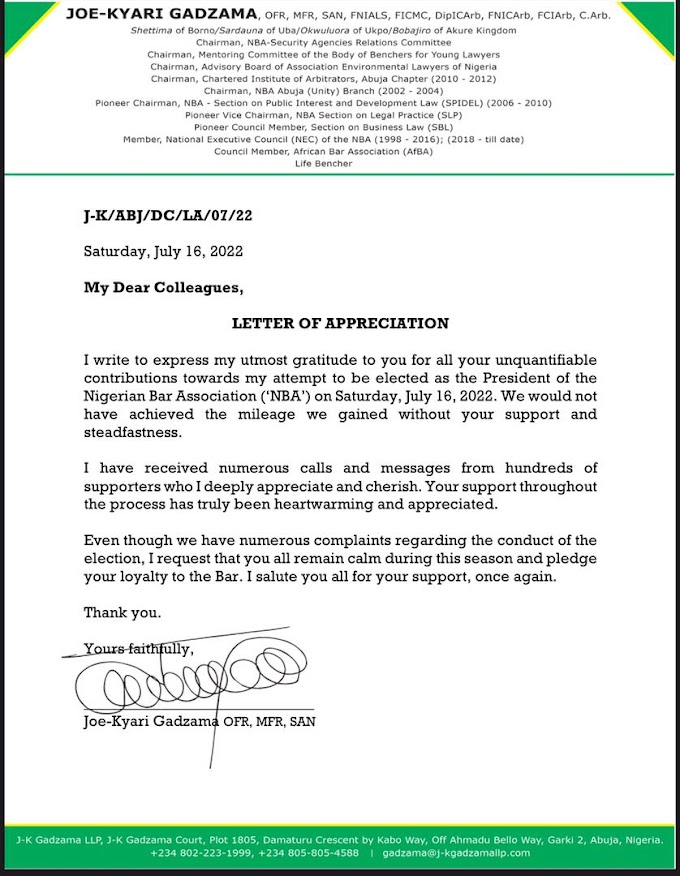BY:TONY OKOROJI ESQ.
Happy New Year to all lovers of Saturday Breakfast.
As promised last week, we will today discuss the famous Anton Piller Order as applied under our common law inheritance and relate it to the attempt to make the order or a semblance of it, part of Nigeria’s statutes. Coincidentally, this writer participated in drafting the provisions of what is today Section 25 of the Nigerian Copyright Act.
Certainly, the provisions of Section 25 of the Copyright Act have their roots in the Anton Pillar order and seek to give statutory backing to the practice as was acknowledged in Rokana Industries Ltd. v. Maun.
Section 25 states that in any action for infringement of any right under the Act, where an ex parte application is made to the court, supported by affidavit, that there is reasonable cause for suspecting that there is in any house or premises any infringing copy or any plate, film or contrivance used or intended to be used for making copies or any other article, book or document by means of or in relation to which any infringement under the Act has been committed, the court may issue an order upon such terms as it deems just, authorizing the applicant to enter the house or premises at any reasonable time by day or night accompanied by a police officer not below the rank of an Assistant Superintendent of Police and seize, detain and preserve any such infringing copy or contrivance; or inspect all or any documents in the custody or under the control of the defendant relating to the action.
Section 25 also provides that any person who knowingly gives false information under the section shall be guilty of an offence and liable on conviction to a fine of =N=1,000.
While the provisions of Section 25 appear to be quite similar to the structure of the classic Anton Piller Order, it can be argued that there are basic differences between the Anton Piller Order as contained in Section 25 and the classic Anton Piller Order.
Under the classic Anton Piller Order, the consent of the defendant is required for the plaintiff to gain entry into the premises of the defendant. Under the provisions of Section 25 however, once the order is granted, the consent of the defendant is not required for the plaintiff to gain entry.
There is also no requirement that a police officer be involved in executing the traditional Anton Piller Order. Under the provisions of Section 25 however, anyone executing the order must be accompanied by a police officer not below the rank of an Assistant Superintendent of Police (ASP).
This writer can identify two major reasons why a senior police officer must be present while a section 25 order is being executed. One is to ensure that the order is not abused. The other is to avoid a breakdown of law and order. Because of the intrusive nature of the Anton Piller order, those at whom the orders are targeted have the tendency to aggressively resist their execution and chaos can easily ensue.
One of the most celebrated Anton Piller orders granted in the war against copyright infringement in Nigeria is the one obtained by my friend, the maverick musician, Charly Boy Oputa and his New Wave Production against the cable T.V. provider, Multichoice Nigeria Ltd. Multichoice had got permission from the Nigerian Television Authority (NTA) to include the Charly Boy Show, produced by Charles Oputa’s New Wave Production in its programming. It so happened that while the Charly Boy Show was shown regularly on NTA, NTA did not own the copyright. The copyright belonged to New Wave Production. On behalf of New Wave Production, famed IP lawyer, Bankole Sodipo went to court and obtained an order under Section 25 against Multichoice Nig. Ltd.
It seems that while the order was being obtained, Multichoice Nig. Ltd. got wind of the development thereby defeating the surprise element. Despite all attempts by Charly Boy, his lawyers, Sodipo and Femi Fajolu, a horde of motor cyclists popularly known as ‘okada men’ and a large team of policemen, it was impossible to gain entry into the heavily guarded premises of Multichoice, to execute the order.
The subsequent intrigues created a spectacle around the Victoria Island Lagos office of Multichoice where business was shut down for a number of days. A lot of colorfully dressed musicians showed up in solidarity with Charly Boy. They sang and chanted all day long even in the rain! Happily, the matter was eventually resolved out of court.
Notwithstanding, one lesson to be learnt in the Multichoice case is that an innocent infringer can still go through a lot of trauma in spite of the fact that he acted innocently. There was no doubt that Multichoice never set out to infringe the copyright of Charly Boy. The well-known cable TV provider in fact got the authorization of NTA in the mistaken belief that NTA owned the copyright in the Charly Boy Show.
As we continue our tutorials on the famous Anton Piller Order, we will next time examine the conditions under which a court may grant the order. May the new year start in a beautiful way for you.
See you next week.







0 Comments